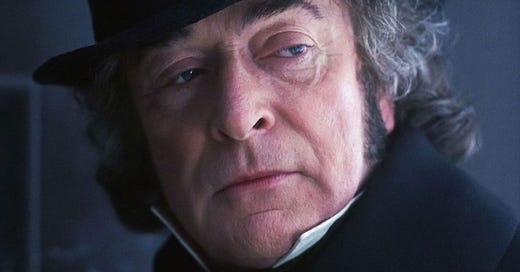Charles Dickens on Christmas — and death
I am an A Christmas Carol tragic.
As a child, I watched Mickey’s Christmas Carol with my little brother, on repeat, every year. I think I have it memorised.
Ditto for The Muppet Christmas Carol, which — fun fact! — is the exact same age as me.
When the animated Jim Carey version came out in 2009, I was skeptical. But seeing it in 3D at the IMAX cinema (could there be a more millennial sentence?), I was transfixed.
By that point, I had read the full original text — and ever since, it has stayed my answer whenever asked “What’s your favourite book?”.
I’m not even a Charles Dickens die-hard, but the imagery and wordsmithery of A Christmas Carol is truly something special. Perhaps because it is those rarest of Victorian novels — a short one. In an era given to rambling serials, every word has its place in A Christmas Carol. Like a delicately balanced recipe, every metaphor adds flavour and vividness with elegant restraint.
And to me, those sentences have always held pure magic and mystique, from the first time Gonzo introduced me to the Marleys (an artistic liberty I will forgive him).
But Dickens also wrote other seasonal pieces — less enduring perhaps, but with their own charm and wisdom. Like the short essay What Christmas Is, As We Grow Older. It’s not something that would have resonated with starry-eyed teenage me, but as I move through my fourth decade, there is something comforting about Dickens’s musings on what Christmas means after the childlike magic.
And spoiler alert — it isn’t all over when you grow up.
For Dickens, Christmas as an adult meant a magnanimous acceptance of what is — for as the folly of youth fades, he invites us to “Welcome, everything! Welcome, alike what has been, and what never was, and what we hope may be, to your shelter underneath the holly, to your places round the Christmas fire, where what is sits open-hearted!”
And, of course, he talks about death. But…beautifully.
On this day, we shut out Nothing!
"Pause," says a low voice. "Nothing? Think!"
"On Christmas Day, we will shut out from our fireside, Nothing."
"Not the shadow of a vast City where the withered leaves are lying deep?" the voice replies. "Not the shadow that darkens the whole globe? Not the shadow of the City of the Dead?"
Not even that. Of all days in the year, we will turn our faces towards that City upon Christmas Day, and from its silent hosts bring those we loved, among us. City of the Dead, in the blessed name wherein we are gathered together at this time, and in the Presence that is here among us according to the promise, we will receive, and not dismiss, thy people who are dear to us!
Where A Christmas Carol gave us Scrooge’s joyful shrieks, and Bob Cratchit’s raise, and Tiny Tim’s survival, What Christmas Is, As We Grow Older offers a less warm-and-fuzzy appraisal of the holiday season. Dickens acknowledges that we who have experienced heartache and hurt will want to escape them at a time when the world seems jolly and bright. But gently, he urges us to experience Christmas wholly — bringing whatever it is we have to the table.
It’s hard not to read this without hearing echoes of Psalm 34:18: The Lord is close to the brokenhearted and saves those who are crushed in spirit. Wherever we are, whatever shape we’re in, Dickens believes we can still have a truly Merry Christmas.




